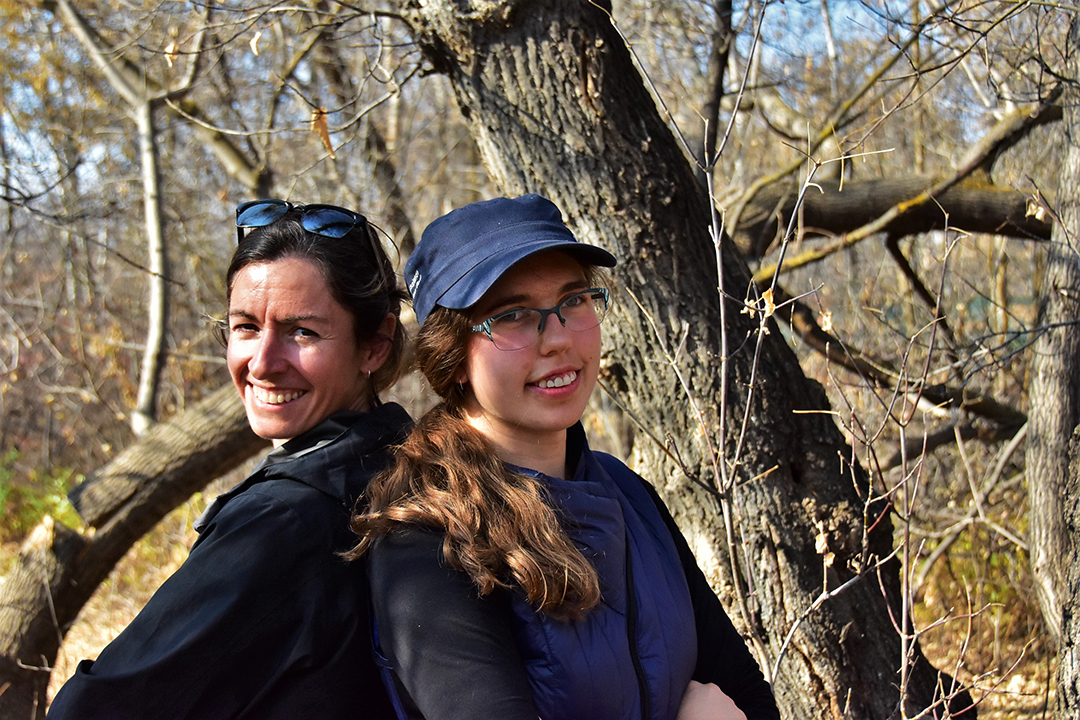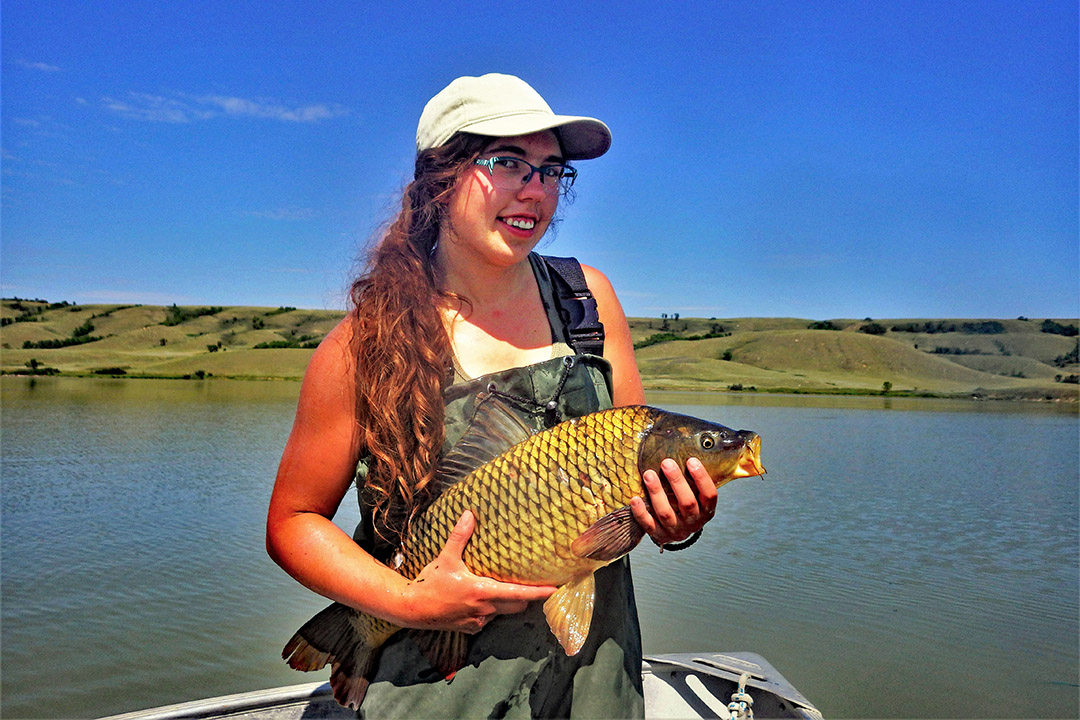
Graduate finds her own path in veterinary medicine and research
Dr. Gabrielle Achtymichuk of Outlook, Sask., has always wanted to be a veterinarian ever since she was a kid — but a taste of research during a summer job at the University of Saskatchewan (USask) made her question that lifelong goal.
By Lynne GunvilleWorking as a research assistant for Dr. Maud Ferrari of the Western College of Veterinary Medicine (WCVM), Achtymichuk spent the summer of 2017 helping graduate students with projects in aquatic behavioural ecology. She soon realized that a career in research was the right fit for her.
“There wasn’t an aspect of research that summer that I didn’t enjoy," says Achtymichuk. “I loved being outside on the water catching and tagging fish, and I equally loved being in the lab and going over the experimental designs for lab trials.”
But Achtymichuk, who had finished three years of studies at USask College of Agriculture and Bioresources before joining Ferrari’s team for the summer, was set to begin her Doctor of Veterinary Medicine (DVM) program at the WCVM in August 2017. Had she made the right choice?
Ferrari helped Achtymichuk to realize that her plans didn’t have to change — she could ultimately combine her two passions by pursuing a veterinary degree followed by graduate studies. As an associate professor in the WCVM’s Department of Veterinary Biomedical Sciences, Ferrari is familiar with both domains, and she encouraged Achtymichuk to follow her instincts.
“I wanted to do both because I genuinely do love learning and I like challenges,” says Achtymichuk. “It makes life more enjoyable and more rewarding — if it wasn’t hard, it wouldn’t be fun!”
When Achtymichuk began her first-year classes at the WCVM that fall, she also continued her work in Ferrari’s laboratory — a means for her to keep learning about research while staying current in the aquatic behavioural ecology field.
Attending Ferrari’s weekly lab meetings became a highlight for Achtymichuk as she coped with the pressures of veterinary school.
“On the toughest weeks of vet med when I was exhausted, those lab meetings reminded me why I was there,” says Achtymichuk. “They reminded me of my end goal — that I wanted to complete veterinary medicine and then begin research so I could combine those two things to get some awesome career in the future, doing everything I enjoyed.”

Achtymichuk’s perseverance paid off, and she’s now a graduate student with Ferrari as her supervisor. She plans to combine her interest in ecology with her education in veterinary medicine by examining disease ecology and/or ecosystem health. Specifically, she hopes to examine disease transmission and how it affects food webs and predation.
While Achtymichuk looks forward to pursuing her research interests, she’s also pleased that she will still be working with Ferrari in her lab.
“Overall, Dr. Ferrari has been one of the most influential people in my life for many reasons,” says Achtymichuk. “[She] was an important person throughout my vet med schooling. She was someone I could talk to on the tough days and someone I could go to for advice. I think I knew right from the start that I’d end up in her lab when I finished vet med.”
She also values Ferrari’s abilities as a teacher — her willingness to educate and coach Achtymichuk in areas such as experimental design, statistics and ecology. Ferrari’s tutoring and encouragement prompted Achtymichuk to give her first research presentation on a complex experiment. That experience earned her first place at the Prairie University Biology Symposium, a student research conference — her most exciting research achievement so far.
Besides new opportunities for questioning and learning, Achtymichuk is looking forward to teaching — a responsibility that she has enjoyed in the past when she coached other undergraduate students in experimental design and ecology concepts.
“I really do enjoy teaching because it comes down to one of my favourite quotes, ‘In learning you will teach and in teaching you will learn,’” says Achtymichuk. “I love the challenge of teaching, of ensuring you understand the material well enough to be able to explain it to someone else, re-explain it from a different angle and answer any questions they have on the topic.”
As she moves ahead to her goals of a PhD degree and a career in academia, Achtymichuk is excited to increase her knowledge in experimental design and statistics — her favourite aspects of research. She also looks forward to the challenge of trying to discover the next new concept, and she welcomes the knowledge that every new discovery leads into another research question and another research experiment.
“It’s so cool that questioning can actually become a career,” says Achtymichuk. “In research you’re encouraged to ask questions. Your job is to ask questions. I have always liked thinking outside the box, and unlike many other careers, in research you’re encouraged to do so.”
Achtymichuk is thankful that she had the support and encouragement — and the determination — to blaze her unconventional research-oriented path through veterinary medicine.
“My advice to future students is to make decisions based on your own interests rather than on others’ opinions,” says Achtymichuk. “You don’t have to take the most straightforward life path. Sometimes the path less travelled and all the curves it brings with it takes longer, but it’s more enjoyable and worth it in the end.”
